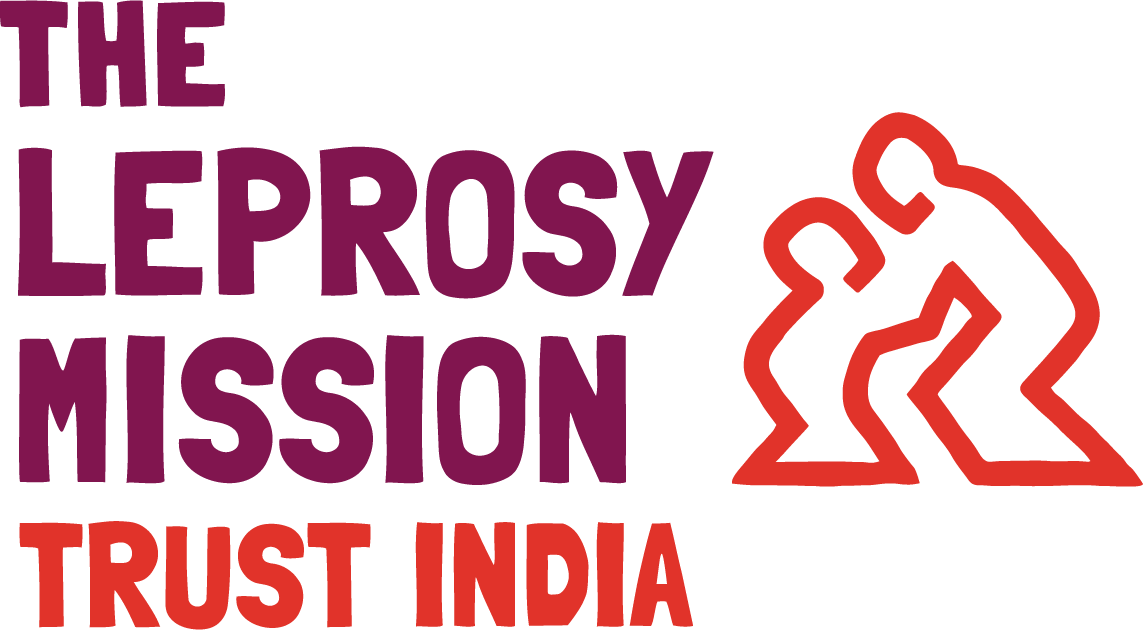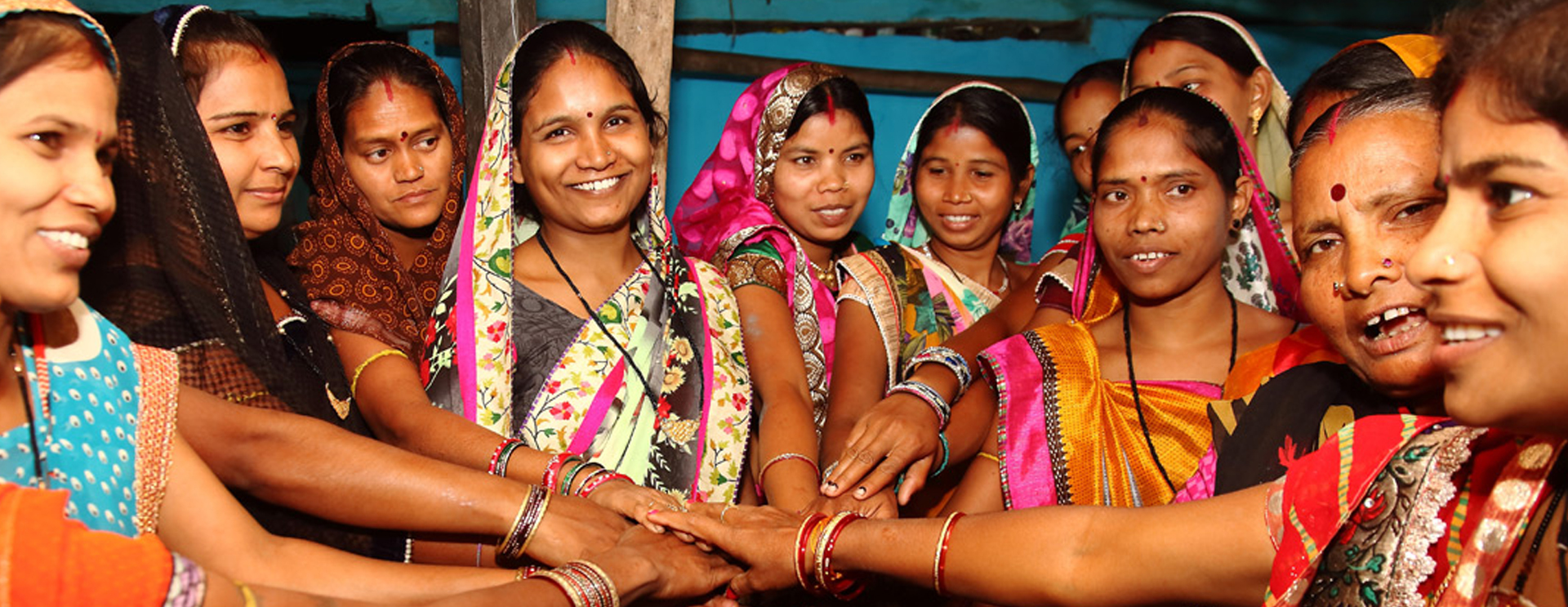Promoting Community Empowerment
Enabling communities to have control over their lives
TLMTI’s Community Empowerment programme works with persons and communities marginalised due to leprosy, disability, gender, and poverty. It aims to bring their economic development and social inclusion through activities, such as awareness-raising on health, human rights, and social issues; and skills building for sustainable livelihood. Apart from the 14 hospitals and six vocational training centres, the programme is implemented through nine community empowerment projects spread across eight states.
The Leprosy Mission Trust India’s (TLMTI) Community Empowerment programme works with individuals and communities marginalised due to leprosy, disability, gender, and poverty. The programme focuses on empowering such individuals and communities so that they are able to access their rights and entitlements and live with dignity.
Through this programme, TLMTI aims to:
- Empower persons affected by leprosy/disability, through raising their awareness, building their capacity, and encouraging their participation in the decision-making process, so that they are recognised and respected as equal and contributing members of the society.
- Build strong, equitable and sustainable communities through education, engagement and collaboration.
TLMTI supports people affected by leprosy/disability and their families to form self-help groups (SHGs) or sustain the existing ones. Where mainstream groups exist, it promotes their inclusion in such groups. Where required, it facilitates the formation of inclusive groups of people affected by leprosy/disability and other marginalised members of the society. TLMTI works in partnership with disabled people’s organisations (DPOs) where they exist, and where they do not exist, facilitates their formation. It also sensitises duty bearers to the rights of people affected by leprosy/disability.
TLMTI assists people affected by leprosy/disability to develop advocacy and communication skills. It also assists them to make sure that their environment provides the required opportunities and support to allow them to make decisions and express their needs and desires effectively.
Simultaneously, it sensitises society to the social aspects of leprosy and encourages them to shed their negative attitudes and behaviour towards people affected by leprosy and support their mainstreaming and development.
It equips people affected by leprosy/disability with the information, skills and knowledge to participate in the political process. It works towards bringing visibility to leprosy-related issues. This is done for integrating these issues into the political decision-making process and for making sure that they are at the centre of development policies and programmes.
The Community Empowerment programme is subdivided into six sub-programmes, in order to achieve its objective. They are:
TLMTI works to strengthen civil society organisations (CSOs) for collective action in support of people affected by leprosy/disability. And at the same time, it sensitises the duty bearers to their lawful needs of the right holders. Thus, TLMTI addresses the issues of power, inequality and social injustice, and aims to bring about change that is empowering, fair and inclusive.
Presently, TLMTI implements its Community Empowerment programme through eight community-based projects spread across eight states of India, namely:

Andhra Pradesh
Maharashtra
Bihar
Tamil Nadu
Chhatisgarh
Uttar Pradesh
Delhi
West Bengal
BUILDING RESILIENT COMMUNITIES PROJECT
Programme Managers:
Mr. Harsha Gudasalamani, Mr. Kismat Nanda, Mr. James George
Project Area:
Chhattisgarh: Janjgir-Champa, Raipur
Uttar Pradesh: Barabanki, Prayagraj
CHILDREN UNITE FOR ACTION (CUFA) PROJECT
Programme Managers:
Mr Naushad Hasan
Project Area:
Andhra Pradesh: Vizianagaram
Bihar: Muzaffarpur
Chhattisgarh: Bilaspur
West Bengal: Purulia
COLLEGE ON WHEELS PROJECT (Accelerating Women’s Empowerment of through Education and Employment)
Programme Managers:
Mr Vijay Patta
Project Area:
Chhattisgarh: Janjgir-Champa, Mahasamund, Raigarh, Raipur
Uttar Pradesh: Barabanki, Ayodhya
COMMUNITY INTERVENTION UNIT
Programme Managers:
Ms M. Phoebe
Project Area:
Delhi
INCLUSIVE EMPOWERMENT PROJECT
Programme Managers:
Mr David Jaganathan, Mr G. Manivannan, Mr Ram K. Roberts
Project Area:
Tamil Nadu: Cuddalore, Villupuram
JAAGRUTI PROJECT
Programme Managers:
Mrs Mangla Suresh Dhondge
Project Area:
Maharashtra: Amravati
UDAAN PROJECT
Programme Managers:
Mr Suresh Dhondge
Project Area:
Maharashtra: Amravati
JAAGRUTI PROJECT
Programme Managers:
Mrs Mangla Suresh Dhondge
Project Area:
Across all TLMTI hospitals and vocational training centres
Projects Headquarters
The Leprosy Mission Hospital
Near Vengurla Road, Hindalga
Belgaum
Karnataka – 591 108
E-mail: belgaum@leprosymission.in
Phone: +91 831 2447751



 Political Participation
Political Participation Self-Help Groups
Self-Help Groups Women Empowerment
Women Empowerment Community Mobilisation
Community Mobilisation Disabled Peoples’ Organisations
Disabled Peoples’ Organisations Education
Education